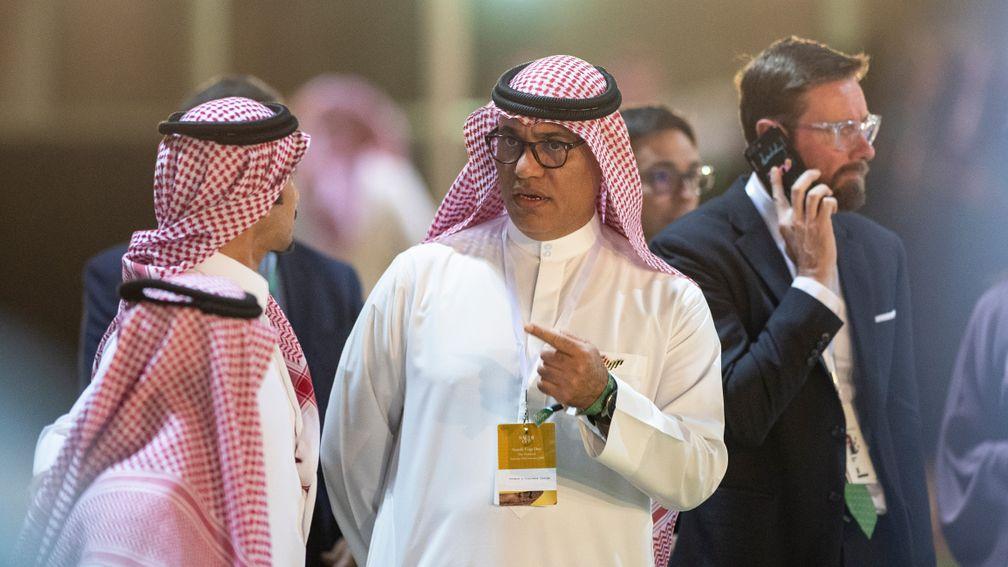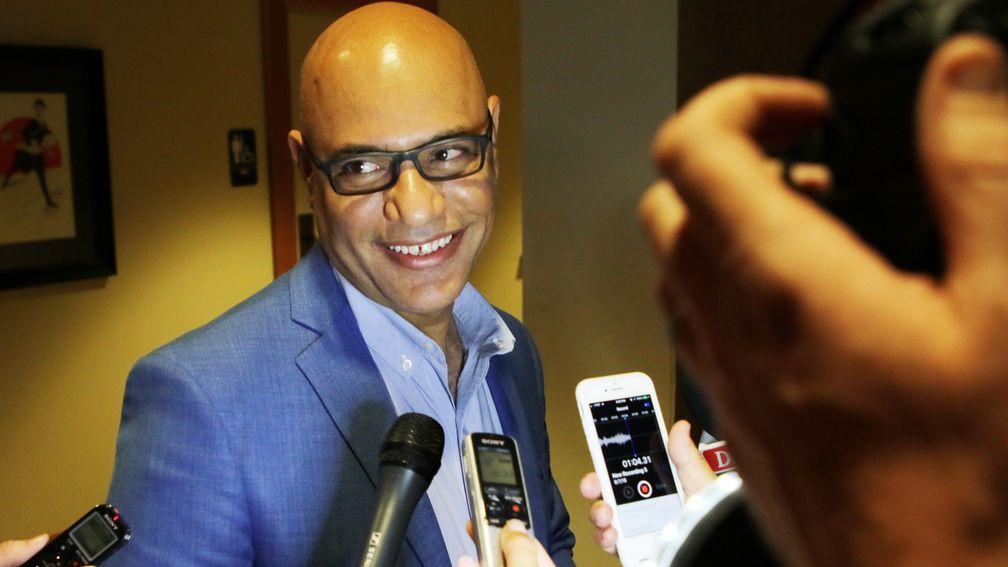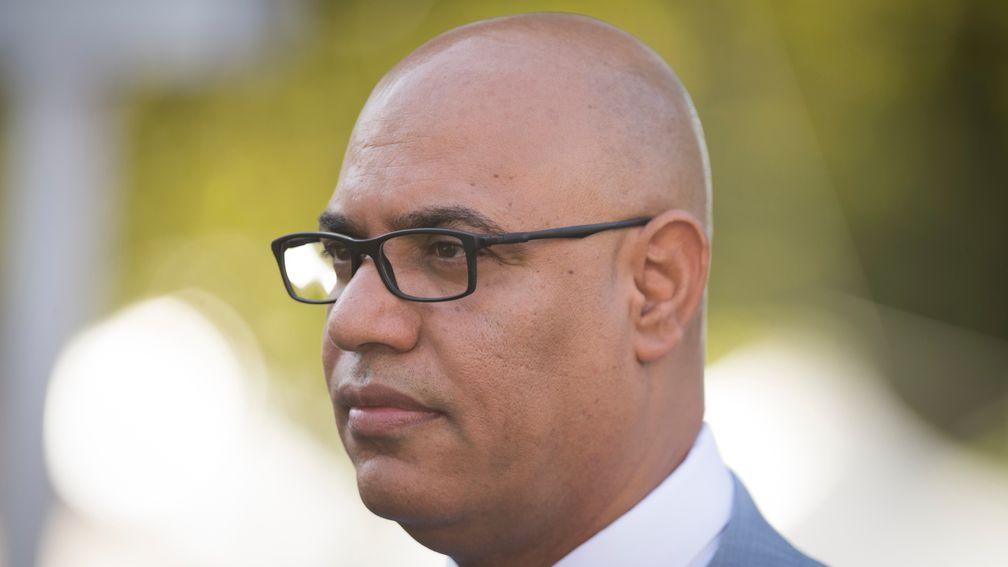The questions that Phoenix Thoroughbreds won't answer

Last November the Racing Post reported that Amer Abdulaziz, the founder of big-spending global racing operation Phoenix Thoroughbreds, had been named as an alleged money launderer for the fake cryptocurrency OneCoin in a US courtroom.
The revelation shook racing and bloodstock. Since Phoenix's emergence in 2017 it had established itself as an increasingly major player on and off the track, powered by the apparently deep reserves of what had been billed as the "world's first regulated thoroughbred investment fund", a new form of ownership structure that offered the tantalising prospect of bringing together the worlds of high finance and racing.
Suddenly, however, questions were being asked about whether this potentially transformative business model might not be all that it seemed.
Shortly after publication, Phoenix Fund Investments, Abdulaziz's Dubai-based fund and the parent company of Phoenix Thoroughbreds, issued a categorical denial of all the allegations against it, insisting they would "vigorously contest all allegations of wrongdoing".
Yet behind the scenes, Phoenix and Abdulaziz have not responded to attempts to discuss the allegations.
On multiple occasions both before and after the initial allegations were reported in the Racing Post, and several times over the past week as we prepared to run the story revealing Phoenix's vice-president Tom Ludt had left the organisation, we have attempted to reach Abdulaziz and his representatives for comment. Dozens of phone calls, text messages and emails have all failed to thus far elicit a direct response.
As a consequence, we believe there are pressing questions left unanswered that the racing and bloodstock industries deserve answers to.
First and foremost, we would like to ask Abdulaziz what, if any, connection he has to OneCoin, a gargantuan international fraud that scammed victims out of at least $4 billion by conning them into thinking they were investing in a cryptocurrency like Bitcoin but was in fact a pyramid scheme making its creators vast sums.
OneCoin has now effectively collapsed following the disappearance of its mysterious founder, Dr Ruja Ignatova (subject of an acclaimed BBC podcast called The Missing Cryptoqueen), and the arrest and trial in America of several key players.
It was the arrest of two OneCoin fraudsters in America that led to the allegations about Abdulaziz first becoming public. Konstantin Ignatov, the brother of Dr Ruja, was arrested on a work trip to the US and subsequently turned state witness in the trial of Mark Scott, a lawyer accused of laundering $400 million for the OneCoin top brass.
During this trial, US prosecutors stated that Scott's bogus private equity funds, collectively known as the Fenero Funds, had sent tens of millions of euros to a company in Dubai called Phoenix Fund Investments, and asked Ignatov what he knew of these transactions.

"Phoenix is a company of Amer Abdulaziz who stole over a hundred million euros [from OneCoin]," he said. Shortly after, asked about Abdulaziz's connection to OneCoin, Ignatov replied: "He was also one of the main money launderers."
Moments later, the US prosecutor produced as a government exhibit what they claimed was an account statement for Phoenix Fund Investments. They stated that the authorised person on the account was Amer Abdulaziz and read out multiple transactions from February and March 2017 allegedly showing €185 million being transferred to it from Scott's bogus funds.
Abdulaziz and Phoenix have categorically denied all allegations made against them in the trial, but they have never offered an explanation for Ignatov's comments or directly addressed the €185m that is alleged to have been transferred by a convicted money launderer to Phoenix Fund Investments.
For the integrity of the sport, and for the countless trainers, agents, sales houses and studs who have done business in good faith with Phoenix, we believe Abdulaziz owes the sport a fuller explanation of these serious allegations.
Since last November, further troubling information has come to light about Phoenix as the result of the investigative reporting of this newspaper's Peter Scargill.
We have obtained video and social media evidence that demonstrates OneCoin operated an office in Dubai's Phoenix Business Center, another company of Abdulaziz's, over a period from late 2017 to early 2018.
The Phoenix Business Center is a serviced office facility and therefore the video does not indicate whether Abdulaziz even knew OneCoin was based there. But, again, we think the racing industry deserves to know what he says about how international scammers ended up operating from his premises.
Also deserving of comment is our discovery that Abdulaziz had not been fully accurate when describing how his Phoenix Thoroughbreds vehicle operated.
Phoenix Thoroughbreds emerged from nowhere three years ago, buying its first horses at Fasig-Tipton on March 1, 2017, and quickly made a name for itself as a big-spending operation with even bigger ambitions.
From spring 2017 to November 2019, Abdulaziz gave numerous interviews in which he described his business model in detail: Phoenix Thoroughbreds, he said, was a new form of investment fund, where high-net worth individuals and organisations could invest in a for-profit fund dedicated to equine assets.
He talked about how the fund had been set up in Luxembourg due to what he said were its strict transparency rules, how the "unique" fund was fully regulated, how clients were queueing up to invest and had been subject to strict due diligence tests (although when pressed he declined to name any of these investors, citing client confidentiality).
Shortly after the courtroom allegations about OneCoin were published, however, we revealed the Luxembourg fund had never actually been operational, was not regulated, had recently been placed into voluntary liquidation, and the fund manager originally approached to oversee it had walked away during the due diligence process.
Phoenix initially offered no comment, waiting almost two months until January 2020 before releasing a statement that offered a gnomic explanation for the demise of the Luxembourg fund: "In June 2019 our senior management took a business decision to voluntarily close our Luxembourg registered fund (a Luxembourg registered alternative investment fund known as a SICAV-RAIF) in order to achieve (what we had originally set out to do in early 2016) the creation of one of the first regulated thoroughbred funds in the world. As such, the decision was made to formally dissolve the registered fund before it received any investor monies or became operational."
Again, important questions were left unanswered. Why had Abdulaziz repeatedly claimed – often going into considerable detail – that the fund was operational, regulated and receiving investor monies? Why close the fund, when Luxembourg had been specially selected for its apparent transparency? How would closing the fund help achieve the goal of creating a fund? And if the fund was never operational, what money was he spending and where was it held?

Finally, we have also reported that Phoenix Thoroughbreds was not Abdulaziz's first foray into the world of racing and bloodstock. In 2010, he bought a number of horses in America, only to default on payment the following year. He also agreed to purchase a farm in Lexington for in excess of $10m, but failed to complete the transaction.
Abdulaziz has no obligation to talk to the Racing Post, but he is a prominent racing figure who just one month ago had a runner in the Oaks on Derby day at Epsom, and despite the string of racing figures who have cut ties with him (including Martyn Meade, Bob Baffert and bloodstock advisor Dermot Farrington) he continues to do business with many in the sport.
As such, there is a clear and pressing public interest in understanding exactly how he responds to being named in connection to a $4 billion financial fraud.
In 2018, Abdulaziz gave a wide-ranging interview to Owner Breeder magazine in which he talked about the importance of transparency.
"Unfortunately, you can get cheated by people in this business," he said. "We wanted to register the fund with a jurisdiction that is very strict, and where financial transparency is required 200 per cent. We want to be transparent ourselves. We don't want people investing in horses only to have no knowledge of what is going on."
It is time for Amer Abdulaziz to deliver on the transparency he promised racing.
Therefore, the Racing Post today publishes the questions Abdulaziz will not answer, and calls on the British and international racing authorities to join us in demanding answers.
The questions
1. Why was Mr Abdulaziz repeatedly described as a money launderer for the fraudulent cryptocurrency OneCoin during the trial last year of former lawyer Mark Scott, now a convicted money launderer?
(For example:
Assistant United States Attorney Nicholas Folly: Now you mentioned an individual Amer Abdulaziz a couple of times. What was his connection to OneCoin?
Konstantin Ignatov: He was also one of the main money launderers for OneCoin.
NF: I believe you testified that there came a time where he stole a hundred million dollars; is that correct?
KI: Over a hundred million.)
2. Did Mark Scott invest in any Phoenix entities using the Fenero Funds he set up to handle OneCoin proceeds, as claimed by the US government during the Mark Scott trial?
3. Evidence from videos and social media demonstrates that OneCoin was operating out of the Phoenix Business Center, a serviced office facility owned by Phoenix Fund Investments, between November 2017 and spring 2018. How did it come to be based there, and to what extent was Mr Abdulaziz aware of its activities?
4. Mr Abdulaziz told the Racing Post in June 2019 he had 50 investors in Phoenix Thoroughbreds. To date, no investors have been publicly identified. Given the serious allegations about Mr Abdulaziz's source of funds, and which could be significantly assuaged if legitimate investors came forward, will he now identify them?
5. If Mr Abdulaziz is unwilling to publicly reveal the names of his investors, will he allow the Racing Post or an independent third party, such as the BHA, to confidentially verify their identities?
6. In numerous interviews over the last two years, Mr Abdulaziz has stated he had a functioning and regulated thoroughbred fund based in Luxembourg. In the Phoenix Thoroughbreds statement dated January 15, it is conceded that this fund never "received any investor monies or became operational". Why did Mr Abdulaziz repeatedly claim it was operational?
(For example, in an interview with ANZ in January 2019, he stated: "We are fully regulated and fully registered. We've got a lot of investors involved with us and a lot on the waiting list." Speaking to the Racing Post in June 2019, he said: "We're the only regulated [thoroughbred] fund worldwide.")
7. Why did the Alternative Investment Fund Manager approached to manage the Luxembourg fund walk away during the due diligence process?
8. In Phoenix Thoroughbreds' January statement, it was claimed that the Luxembourg fund was voluntarily closed in June 2019 "in order to achieve (what we had originally set out to do in early 2016) the creation of one of the first regulated thoroughbred funds in the world". Can Mr Abdulaziz explain how closing the Luxembourg fund helped achieve this goal?
9. Given that the Luxembourg fund, which has repeatedly been identified as the source of Phoenix Thoroughbreds' spending, never operated or had any assets, can Mr Abdulaziz say where the $250m he claims to have raised from investors has been held?
10. Can Mr Abdulaziz explain why he defaulted on payment for a number of horses in 2011 as well as failing to complete the purchase of a farm in Lexington he had agreed to buy for in excess of $10 million?
Members can read the latest exclusive interviews, news analysis and comment available from 6pm daily on racingpost.com
Published on inNews
Last updated
- Inothewayurthinkin and Galopin Des Champs top 33 names in open Gold Cup as entries for big Cheltenham Festival chases are made
- Introducing Masters of Betting, an unmissable series available now - read it all with 25% off RP+
- Live Q&A with Moray Smith - chat to the pro punter from 7pm this evening on racingpost.com
- How to add Racing Post as a preferred news source in Google
- It's your LAST CHANCE to get 30% off Racing Post+ for a whole year - don't miss out on all our fantastic content!
- Inothewayurthinkin and Galopin Des Champs top 33 names in open Gold Cup as entries for big Cheltenham Festival chases are made
- Introducing Masters of Betting, an unmissable series available now - read it all with 25% off RP+
- Live Q&A with Moray Smith - chat to the pro punter from 7pm this evening on racingpost.com
- How to add Racing Post as a preferred news source in Google
- It's your LAST CHANCE to get 30% off Racing Post+ for a whole year - don't miss out on all our fantastic content!